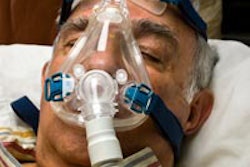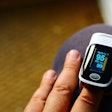Medical device company ImThera Medical announced that the first two patients in its international obstructive sleep apnea clinical study have been implanted with the company's aura6000 system.
The Targeted Hypoglossal Neurostimulation Study #3 (THN3 Study) is a randomized, controlled, prospective, multicenter clinical trial being conducted in the U.S. and Europe.
"Too many patients are left untreated or undertreated by the currently available therapies for obstructive sleep apnea, and until now we've had very little to offer them," stated principal investigator Alan Schwartz, MD, professor of medicine and medical director of Johns Hopkins Sleep Disorders Center at Bayview in Baltimore, MD, in a press release. "ImThera's device offers a unique approach to hypoglossal stimulation with its ability to selectively stimulate several muscles individually."
The aura6000 system is a neurostimulation device that consists of two implantable components. A small rechargeable pulse generator is placed under the skin near the collarbone, and a multielectrode lead is placed in the upper neck. The therapy stimulates the hypoglossal nerve, increasing muscle tone of multiple tongue muscles and preventing the tongue from collapsing into the upper airway during sleep, according to the company.
"This is a major milestone on our journey to make this life-changing therapy available to the millions of Americans with sleep apnea," stated Marcelo Lima, president and CEO at ImThera Medical, in the release. "We look forward to the completion of the study, and the filing of a PMA [premarket approval] application with the Food and Drug Administration."



















